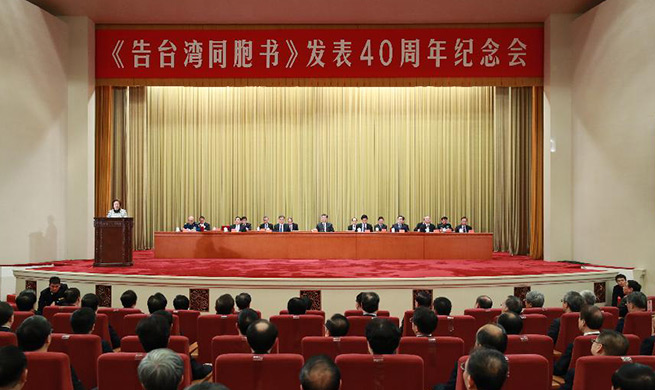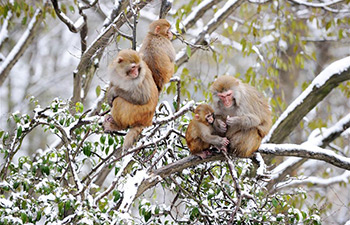WASHINGTON, Jan. 2 (Xinhua) -- David Skorton, head of the U.S. Smithsonian Institution, said he remains optimistic about the cultural and people-to-people exchanges between China and the United States in the future.
The secretary and chief of the prestigious U.S. cultural and research institution made the remarks in a recent interview with Xinhua at the headquarters of the Smithsonian Institution, which is the world's largest museum, education, and research complex.
COOPERATION WITH CHINA
The institution's work with China dates back to 1972 when two giant pandas came to the Smithsonian's National Zoo in Washington, DC. But even before that, scientists from the institution's National Zoo and the National Museum of Natural History had begun carrying out scientific research in China.
A prominent part of the Smithsonian's cooperation with China lies in the fields of anthropology, archeology and cultural history, Skorton said.
"These are areas that we're very strong at, so these are areas that we tend to focus on, because China is such an ancient civilization and affected so much thinking around the world to this day, we think that interacting about those cultural matters is very, very important," he said.
"I believe that our partners in China also find it very useful to work with our scientists," he added. "China is a place of great, great interest for us and many partnerships."
"What I can tell you is this, our Smithsonian continues to be very active in China," he said. "You'll be very impressed about how many things that we have been doing and are doing right now and there are more things being planned."
PANDAS TIES
Soon after then U.S. President Richard Nixon visited China in 1972, Beijing sent the U.S. National Zoo, which is under the Smithsonian, two pandas as gifts.
Currently, the two sides have been working together on the research of panda's landscapes and wildlife interactions, conservation, and comparative medicine and disease susceptibility.
Three other zoos in the United States currently have pandas on loan from China, namely in San Diego, Atlanta, and Memphis, but the National Zoo's panda program is the oldest.
Skorton was exhilarated about the pandas living in the Zoo.
"The pandas are an area of great public interest throughout the United States," he said. "But especially in Washington ... every time something happens, like a panda becomes pregnant or a panda gives birth, it's the biggest news in Washington."
"Everybody is very happy. But in addition to the jocular happy aspect of that, the pandas also act as a bridge between our cultures," he added.
"Because our veterinarians and scientists are working on an endangered species and we've had relationship for years and years with Chinese counterparts and formed a fabulous scientific collaboration," he said.
"That's what makes it work, the people-to-people exchange," he said.
CULTURAL BONDS
The years after China's reform and opening up of the late 1970s have seen frequent and wide-ranging cooperation between the Smithsonian and its Chinese counterparts.
"I have many good friends in China, some are in the higher education community, some in the science community. And I've had the honor of visiting the Chinese Academy of Sciences and many other aspects of the cultural scene in China," he said.
"Very admirable work going on and very good advancements throughout the world of knowledge in science, in art and in the humanities," he added.
Skorton noted that "we continue to be very interested in working with Chinese colleagues and in doing studies together where we can do partnerships together."
"Cultural institutions continue to want to work together. I continue to think about my colleagues and friends in China as colleagues and friends. I believe they feel the same way toward me and toward the Smithsonian Institution," he said.













